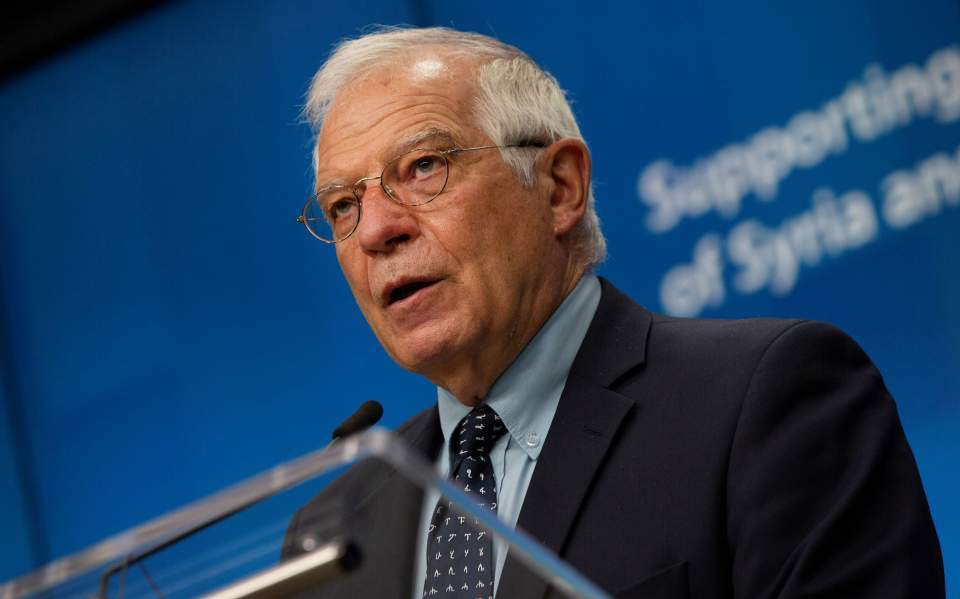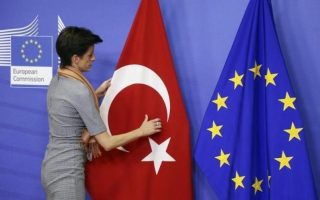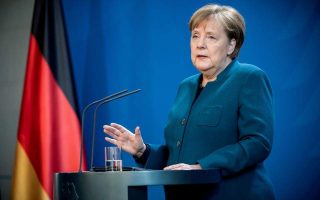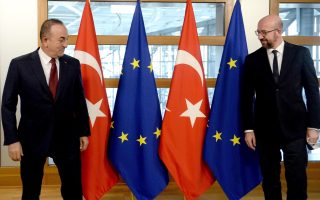Borrell report on Turkey responds to Greek concerns

The upcoming report on Turkey by European Commission Vice-President and High Representative Josep Borrell appears to respond to all Greek concerns.
Borrell will present the report to the next EU summit which will take place via teleconference Thursday.
As Greece demanded, the Borrell report combines a positive agenda, with incentives provided to Turkey, with reminders of Turkey’s behavior over the past few years and warnings that the positive agenda could be reversed and new sanctions imposed.
Among Ankara’s recent and not-so-recent acts mentioned in the report are its continued contesting of Greek sovereignty over parts of the Aegean with air force overflights and ramping up of military tension in the eastern Mediterranean; its effort to use migrants as a battering ram, as it did with its encouragement for them to cross the land border to Greece in early 2020; and its acts directly contravening international law, such as the Turkish-Libyan memorandum demarcating maritime zones with the country it has no common borders with.
Thus, the report goes a long way towards incorporating Greek concerns. If there are no significant changes to the report until Thursday, then Athens should be satisfied by the big picture and by the way the EU institutions approach it.
Of course, the Borrell report is not only about the contentious issues between Greece and Turkey: it extensively mentions the whole spectrum of European-Turkish relationships, migration, customs union, the possibility to liberalize the visa regime, human rights and other issues.
It is also obvious from the report that Turkey’s decision to withdraw from the Istanbul Convention, a European treaty protecting women, has rankled the EU.
The main points of the Borrell report regarding issues of specific concern to Greece are the following:
First, it mentions that a positive agenda remains on the table but on condition that Turkey will be ready for sincere cooperation with EU and its individual member-states and will be willing to resolve any differences through dialogue and according to international law principles.
Second, it makes specific reference to the events along the land border between Greece and Turkey in March 2020 and it recognizes that Turkey actively encouraged migrants to violate the border, which is also an EU border. The report notes that this attempt contravenes the 2016 EU-Turkey Joint Statement on migration.
Third, the report mentions the Turkish-Libyan memorandum, which violates the rights of islands to maritime zones and also mentions Turkish overflights of Greek islands and the aggressive rhetoric of Turkish government officials.
Fourth, it mentions the tensionsarising from the expedition of “research vessel” Oruc Reis in a way that aligns with Greek positions.
Fifth, it mentions the choices EU has if Turkey once again chooses escalation and unlawful behavior.
Sixth, the report mentions the exploratory talks between Greece and Turkey which have resumed after a five-year hiatus. It says that the demarcation of maritime zones (continental shelf and Exclusive Economic Zones) must be done through dialogue and negotiations and in good faith, in accordance with international law and the UN Convention on the Law of the Sea.
Seventh, it mentions the interruption of returns of migrants from Greek islands, which is one of Turkey’s commitments according to the EU-Turkey Joint Statement. The report demands the immediate resumption of returns concerning 1,500 migrants currently staying on Greek islands whose asylum demands have been rejected, including at the appeals level.
In the framework of a positive agenda, the report mentions several incentives for Turkey to change its stance, with a customs union the greatest of them. There are also mentions of closer economic relations.
The stick part comes from the warning of sanctions in sectors such as energy if Turkey insists on unilateral and provocative acts in the eastern Mediterranean, limitations in economic cooperation, including bank activities and actions affecting other sectors of the Greek economy. Sanctions by sector are a longstanding Greek demand.
The report includes a mention of the division of the island of Cyprus that will obviously not satisfy Nicosia, even though the report notes that the non-resolution of the issue is a serious obstacle to the normalization of EU-Turkey relations.
The report’s conclusions acknowledge the volatile and fragile nature of EU-Turkey relations and note that, despite positive steps taken, it will take time to assess whether de-escalation is lasting and credible. Thus, any policy instruments, positive and deterrent, are conditional, can be reversed and must be proportional.
In practice, at least according to the language of the report, the quality of EU-Turkish relations will depend on Ankara’s long-term stance.





